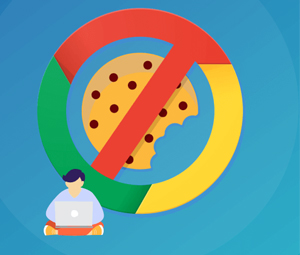
As every click, swipe, and search in the modern internet age leaves a trace, privacy has become an essential concern for big digital giants. Google, the massive search engine that influences many of our online activities, has chosen to disable third-party cookies on its Chrome browser. Through the use of third-party cookies, users are tracked around the internet and their interests are recorded, along with other highly personal details like gender, sexual orientation, religion, and political affiliation—almost everything. The Google update will set the stage for an extensive phase-out of third-party cookies in the second half of 2024. Currently, 30 million people, or 1% of Google’s user base, will be blocked, according to a blog post written by Anthony Chavez, the leader of Google’s Privacy Sandbox project.
Third-party cookies are by default blocked by browsers like Apple’s Safari and Mozilla’s Firefox, thus Google is not the first to do this. With a “strict” privacy option, Microsoft Edge even provides the same. A significant portion of web usage is driven by Google Chrome. Due to its current dominance, Google took its sweet time balancing privacy concerns without negatively affecting its online ad business, which generates the majority of its revenue.
The ad-driven space won’t collapse due to the Privacy Sandbox initiative. Regulators, however, haven’t missed Google’s aim since they see this as a way to reinforce Google’s already strong position. If all goes according to plan, Google will keep implementing Tracking Protection to increase internet privacy until all Chrome users have third-party cookies removed by the middle of 2024. According to Google, the implementation will be slow allowing publishers, advertisers, and ad-tech companies time to test their readiness for a web without third-party cookies.
- Code Smarter, Not Harder: 5 Free AI Tools You Need to Know! - January 22, 2025
- Meta Takes on CapCut with Its New Video Editing App ‘Edits’ - January 20, 2025
- NovaSky Debuts Affordable Open-Source AI Model for Advanced Reasoning - January 14, 2025




